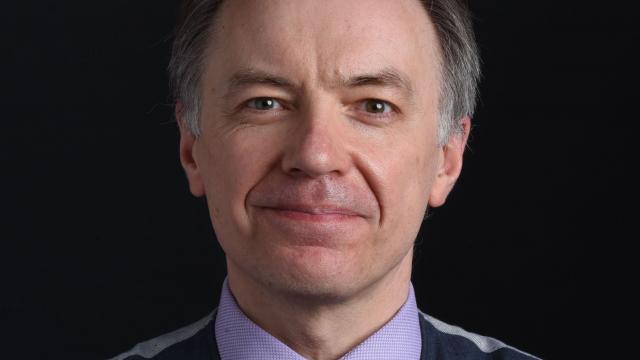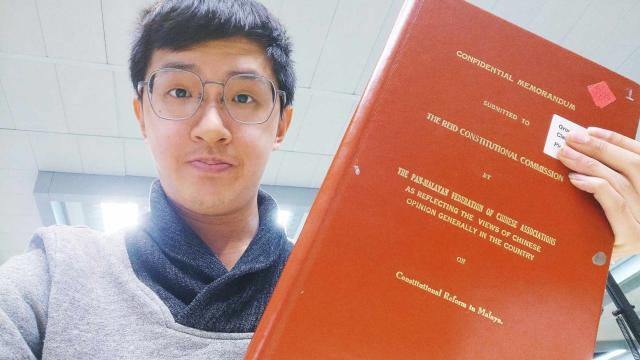
Why the world’s not acting on climate change and what we can do about it.
About the lecture
As part of the College's 550th anniversary celebrations, St Catharine's will be hosting several lectures open to students, staff, Fellows, alumni and the public. Recordings for each lecture will be published online so that anyone who was not able to attend has the opportunity to watch back at their leisure.
Professor Julian Allwood (2018) is Dudley Robinson Professorial Fellow in Engineering at St Catharine's and Professor of Engineering and the Environment at the University of Cambridge. He will speak about why climate mitigation and other good societal goals aren't happening and how the College community could be involved in novel approaches to making good things happen.
Registration is free and open to all. Locally-sourced drinks and plant-based snacks will be served if attendees wish to remain and network after the lecture.
It would be helpful if attendees could book a place using our registration form to give the organisers an indication of numbers.
Introduction to the lecture
Making things: Engineers are good at making things, and as we attempt to avoid catastrophic climate change, engineers around the world have responded with an enthusiasm for making new things – renewable power, carbon capture, negative emissions technologies, new nuclear generation, new uses of hydrogen and so on.
Making things happen: These inventions align with the powerful idea that the way to make things happen is through market forces. Technological development delivers either cost savings or new benefits, early adopters pay a premium and with experience and scale, costs fall to establish a new and expanded equilibrium, and so the economy grows. As carbon emissions are an un-priced externality, a well-established view of how to deliver climate mitigation is to put a price on carbon. This would allow efficient solutions to emerge through conventional models of business innovation and growth, and fits with a politics that aims to avoid “picking winners” or restricting freedom to choose.
Unfortunately, it isn’t working. We don’t have a global carbon price, or a mechanism to deliver one and in the absence of meaningful “negative emissions” technologies, we would need an infinite price to deliver zero emissions. Meanwhile, without it, we are struggling to find innovations that markets prefer: only solar and wind power are now commercially attractive without subsidy.
We can also make things happen by applying new regulations that limit choices, but this is politically difficult and tends to follow a health-related crisis. Regulation on asbestos, CFCs that created the ozone hole, and recently on electric cars, all followed public concern over health.
We’re therefore making much less progress that we’d like in dealing with climate change. While we continue to wait for new technologies to become commercially attractive, we aren’t acting in other ways, global emissions rise, and even in the UK we have made only small progress. The risks are growing but the reality is disguised by mis-information:
- Blame-shifting, between countries and companies is hard to detect because we don’t have a clear means to aggregate all proclaimed plans into a coherent whole. For example, there are many possible uses of hydrogen, but no plans to deliver it at scale.
- Providing incentives to bring about innovation doesn’t bring about immediate change, because it takes time to deploy and expand new technologies or large infrastructure.
- The powerful myths of “carbon offsetting” and other delaying tactics are hard to un-pick.
Behind this misinformation lies a habit of thinking that climate mitigation must not influence the economic development that would occur without it. Typically, policy plans assume a future demand for goods and services based on uninterrupted economic growth, and then “back-cast” a required supply. In contrast, the work of my own research group and the UK FIRES programme that I lead, has forecasted future resource supply, in order to ask, what is the best use we can make of the limited resources we’ll be able to access.
This approach, first reported in our “Absolute Zero” report in 2019, which with over 100,000 readers is now the University’s second-most accessed resource, is unique and valuable. It has given us the chance to identify and articulate a whole range of innovation opportunities, some of which could be made to happen under conventional market conditions. Last year we spun-out three companies, to exploit innovations in construction design, making car-bodies with much less scrap, and the worlds’ first zero emissions cement. These are exciting, and we are bidding to expand and stimulate much more activity in this area.
However, the realities of deployment rates and resource aggregation, demonstrate clearly that we cannot deliver a safe climate within the time available, unless we embrace some specific forms of restraint. For some decades, we won’t have as much energy as we’d like, we must stop eating ruminants (beef, lamb and dairy) and we will have to give up flying.
Restraint is the reality of delivering a safe climate, but we don’t have much experience of making it happen, outside of war. In common with many of the other Sustainable Development Goals, engineering has a useful role to play in describing our physical options for delivering good things and the constraints on the resources available to us. But within our own discipline, engineers don’t have the skills to deliver the required change.
Neither does anyone else.
Making good things happen: Restraint doesn’t sit easily in the business school, or economics, yet both disciplines have crucial insights that will help us deliver it. So also do colleagues in theology, philosophy, history, English, music, languages and everything else. Making good things happen – whether global food security or climate mitigation – doesn’t sit naturally in any of our disciplines, so we aren’t paying sufficient attention to our potential collective contribution. There are critical questions that none of us currently address:
- How do we change our minds – from the partially-informed positions we hold today, to a collective resolution about physically achievable action?
- What individual goals can we adjust to collaborate in pursuit of a collective good, accounting for the physical reality of how we can bring it about?
- How do we accelerate the delivery of unprofitable projects that deliver good things?
In raising these questions, as part of St Catharine's 550th anniversary, I recognise that with our current members and alumni, we span all the insights and experience that should be brought to bear on these questions. I hope the talk will lead to a discussion that reveals new opportunities for being a world-leading centre of useful knowledge in the 21st century.






